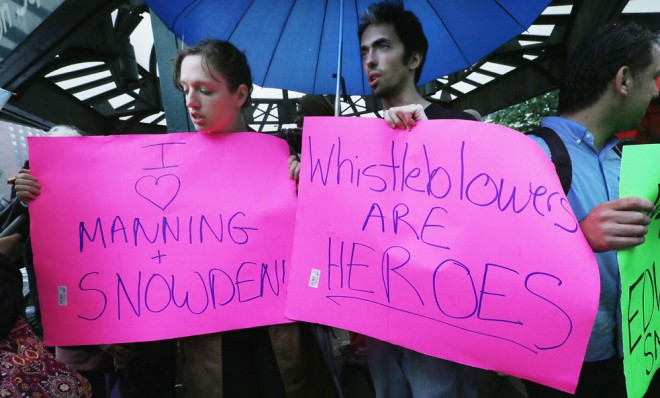Why Edward Snowden wants to go to Ecuador
The South American country has already given WikiLeaks' Julian Assange a place to stay...


A free daily email with the biggest news stories of the day – and the best features from TheWeek.com
You are now subscribed
Your newsletter sign-up was successful
Leaders in Ecuador say they have received a request for asylum from former National Security Agency contractor Edward Snowden, who is fighting to avoid being extradited to the U.S. to face espionage charges for leaking secrets on the agency's mining of internet and phone data. Over the weekend, Snowden flew from Hong Kong to Moscow, with the help of WikiLeaks, the anti-secrecy organization, and reportedly hopes to keep moving to Cuba and, eventually, Ecuador to keep out of reach of the U.S.
Secretary of State John Kerry urged Russia to "live by the standards of the law" and send Snowden home to face charges that he illegally divulged classified information on American surveillance programs. Russia, however, said it had "no authority" to detain Snowden, keeping alive — at least for the moment — his chances of ultimately reaching Ecuador.
Of all the countries in the world, why did Snowden ask a small South American nation (population 15 million) to take him in? It makes good sense for several reasons.
The Week
Escape your echo chamber. Get the facts behind the news, plus analysis from multiple perspectives.

Sign up for The Week's Free Newsletters
From our morning news briefing to a weekly Good News Newsletter, get the best of The Week delivered directly to your inbox.
From our morning news briefing to a weekly Good News Newsletter, get the best of The Week delivered directly to your inbox.
Ecuador's leaders have already demonstrated their willingness to provide safe haven for people being hunted by U.S. authorities. Last year, Ecuador offered WikiLeaks founder Julian Assange refuge at its London embassy. Assange is wanted in Sweden for questioning in an alleged sexual assault case, but he fears being extradited to the U.S. to face charges for WikiLeaks' posting of secret documents. "No doubt," says Doug Mataconis at Outside the Beltway, "Assange and WikiLeaks have played some role in Snowden approaching Ecuador."
It is easy to understand why Snowden might follow Assange's lead. Rafael Correa, Ecuador's third-term president, "is a vocal critic of U.S. foreign policy and Western economic influence in Latin America," says Daniel Arkin at NBC News. "And he is part of a cadre of Latin American leaders — including Raúl Castro of Cuba and the late Hugo Chávez of Venezuela — perceived to have an anti-American political worldview." As Fordham Law School professor Andrew Kent puts it, Ecuador's leaders have a "history of sticking their finger in the eye of the United States on security issues."
Correa also has a soft spot for whistle-blowers — at least those who are not from Ecuador, where he does not have a reputation for being kind to dissenters. Correa once welcomed Assange "into the club of the persecuted" during a cozy interview on Russian TV, says Olga Khazan at The Atlantic. "If Correa sees leakers and whistle-blowers as fellow little-guy allies in his standoff with big Western governments," Khazan says, "he might be ready to welcome Snowden to that club, as well."
Ecuador also offers stronger political cover than one might think. It has powerful regional allies — including Cuba and oil-rich Venezuela — and a healthy dose of economic support from China, notes Jonathan Watts at Britain's Guardian. It is "slightly less risky than Venezuela," as "Correa is less of a hate figure in the U.S." than Chávez or his handpicked successor to the presidency, Nicolás Maduro. Also, "Correa has just been re-elected to a four year term, so Snowden's cover would be likely [to] last until at least 2017."
A free daily email with the biggest news stories of the day – and the best features from TheWeek.com
And Snowden could certainly be stuck in a less pleasant place to hide out. "Quito is a stunning city high in the Andes with great food, decent internet, reasonable prices, and easy access to Pacific beaches and Amazon forest," Watts points out. And while the altitude (9,200 feet) of the capital, Quito, takes some getting used to, "it has cool summers and mild winters."
Harold Maass is a contributing editor at The Week. He has been writing for The Week since the 2001 debut of the U.S. print edition and served as editor of TheWeek.com when it launched in 2008. Harold started his career as a newspaper reporter in South Florida and Haiti. He has previously worked for a variety of news outlets, including The Miami Herald, ABC News and Fox News, and for several years wrote a daily roundup of financial news for The Week and Yahoo Finance.
